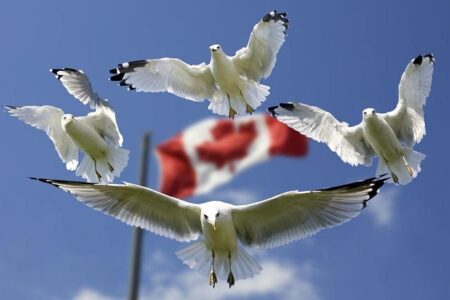Malayalam actor Navya Nair has found herself in an unexpected controversy during her recent visit to Australia, after being fined Rs 1.14 lakh for carrying jasmine flowers. The incident has sparked discussions about Australia’s strict biosecurity regulations and the challenges faced by international travelers unfamiliar with local laws. This development sheds light on the importance of adhering to agricultural guidelines to prevent the introduction of foreign plant materials that may pose ecological risks.
Malayalam Actor Navya Nair Faces Legal Action in Australia Over Carrying Jasmine Flowers
Malayalam actress Navya Nair recently found herself in an unexpected legal predicament during a visit to Australia. Authorities imposed a fine of Rs 1.14 lakh on the popular star after she was found carrying jasmine flowers in her luggage, an item that is strictly regulated under Australian biosecurity laws. The incident occurred at the customs checkpoint where agricultural products, including flowers, are thoroughly screened to prevent the introduction of pests and diseases.
The decision to fine Navya Nair sparked discussions about the stringent biosecurity measures in place. For clarity, here are some key points about Australia’s flower import restrictions:
- Prohibited items: Fresh flowers, certain fruits, and plants without proper permits.
- Penalties: Hefty fines and possible confiscation of goods.
- Reason: Prevent the spread of invasive pests and diseases to native flora.
| Aspect | Details |
|---|---|
| Item | Jasmine Flowers |
| Fine Amount | Rs 1.14 lakh |
| Authority | Australian Customs and Border Protection |
| Reason for Fine | Carrying prohibited agricultural product |
Understanding Biosecurity Laws in Australia and Their Impact on Visitors
Australia enforces stringent biosecurity laws aimed at protecting its unique ecosystem from foreign pests, diseases, and invasive species. These regulations apply to all visitors arriving in the country, with strict controls on the import of plants, fruits, flowers, and animal products. Failure to comply with these rules can result in severe penalties, including hefty fines, as was the case with Malayalam actor Navya Nair, who was fined Rs 1.14 lakh for carrying jasmine flowers that were not declared upon her arrival. The intent behind such measures is to preserve Australia’s agricultural industry and natural habitat from potential biosecurity risks.
Key points visitors must be aware of include:
- All plant materials, soil, and organic products must be declared at immigration.
- Cleaning personal belongings like shoes and luggage is mandatory to avoid carrying seeds or insects.
- Unlawful importation of flora or fauna can attract fines exceeding AUD 1,000, with escalating penalties for serious breaches.
| Infraction | Penalty (AUD) | Example | |
|---|---|---|---|
| Undeclared Plant Material | 1,000 – 5,000 | Jasmine flowers | |
| Carrying Soil or Seeds | 2,000 – 10,000 | Soil in shoes or bags | |
| Importing Animal Products | Importing Animal Products | 1,500 – 7,500 | Undeclared meat or dairy |
Visitors are strongly advised to thoroughly declare all relevant items and follow biosecurity protocols to avoid fines and protect Australia’s environment.
“`
If you want, I can help you format or expand this further!
Recommendations for Tourists to Avoid Penalties Related to Prohibited Items
Travelers must exercise caution when carrying items across international borders, as even seemingly harmless objects like flowers can lead to hefty fines. It is essential to thoroughly check the prohibited and restricted items list provided by customs authorities of the destination country before packing. Commonly restricted items include:
- Fresh plants, flowers, and seeds
- Food products and animal-derived items
- Medicinal herbs and supplements
- Sharp objects or self-defense tools
Moreover, declaring any questionable items at the customs checkpoint is crucial to avoid penalties. Failure to declare prohibited goods can lead to fines, confiscation, or even legal action. For clarity, travelers can consult official government websites or contact embassies prior to travel. Below is a quick reference table summarizing key precautions:
| Precaution | Action | |||||||||
|---|---|---|---|---|---|---|---|---|---|---|
| Check prohibited items list | Visit official customs website | |||||||||
| Declare all items | Fill customs declaration form honestly | |||||||||
| Avoid carrying fresh plants or flowers | Opt for synthetic or dried souvenirs | |||||||||
| Consult official sources pre-travel | Check embassy or cons It looks like your HTML section was cut off towards the end. I can help you complete it. Here’s the full, corrected, and well-formatted version of the recommendations section including the full table content and close tags:
“`html Travelers must exercise caution when carrying items across international borders, as even seemingly harmless objects like flowers can lead to hefty fines. It is essential to thoroughly check the prohibited and restricted items list provided by customs authorities of the destination country before packing. Commonly restricted items include:
Moreover, declaring any questionable items at the customs checkpoint is crucial to avoid penalties. Failure to declare prohibited goods can lead to fines, confiscation, or even legal action. For clarity, travelers can consult official government websites or contact embassies prior to travel. Below is a quick reference table summarizing key precautions:
|




